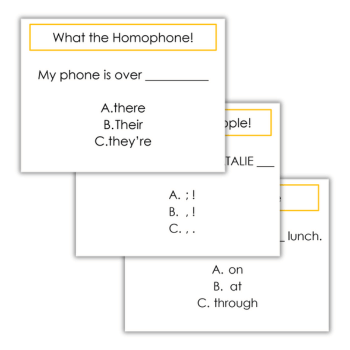Use this baseline SPaG test as a diagnostic tool to assess the proficiency levels of your secondary pupils in key areas.
This specific test covers spelling, homophones, punctuation and prepositions, providing a comprehensive overview of students’ foundational skills in English.
The importance of a SPaG test lies in its ability to establish a benchmark for students’ current abilities. By identifying strengths and weaknesses early in the academic year, you can tailor your instruction to address specific gaps in knowledge.
For instance, if a significant portion of your class struggles with homophones, design targeted lessons to improve understanding and usage of these commonly confused words.
Spelling
Spelling is a critical component of written communication. This SPaG test includes commonly misspelled words such as “necessary” and “embarrassment,” ensuring students master essential vocabulary.
Accurate spelling enhances readability and professionalism in students’ writing, which is vital for their academic success and future employment opportunities.
Homophones
Homophones (words that sound the same but have different meanings and spellings) are another focus of the test.
Misusing homophones can drastically alter the meaning of a sentence. By practising distinctions between words like “there,” “their,” and “they’re,” students will develop precision in their writing.
Punctuation
Punctuation is essential for clarity and meaning. This SPaG test covers various punctuation marks, from basic full stops and question marks to more complex uses of semicolons and colons.
Proper punctuation helps convey the correct tone and structure of sentences, making students’ writing more effective and engaging.
Prepositions
Finally, the test assesses understanding of prepositions, which are crucial for indicating relationships between objects in a sentence.
Mastery of prepositions like “under,” “above,” and “across” helps students construct clear and accurate descriptions and instructions.
For more resources head to Miss Cole’s Shop on the TES.











